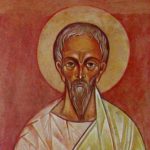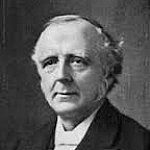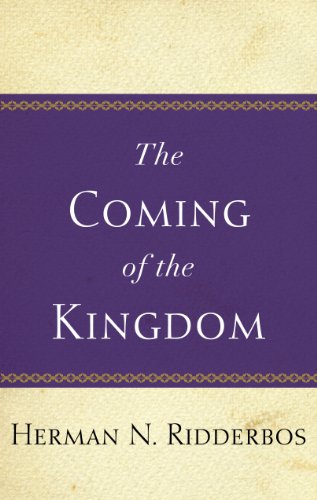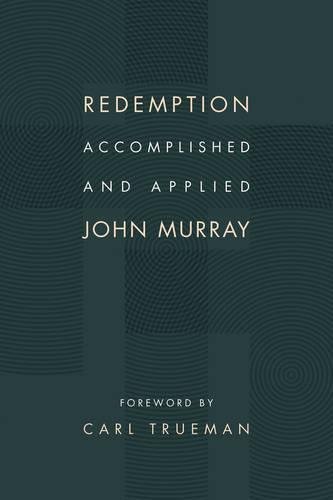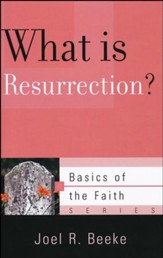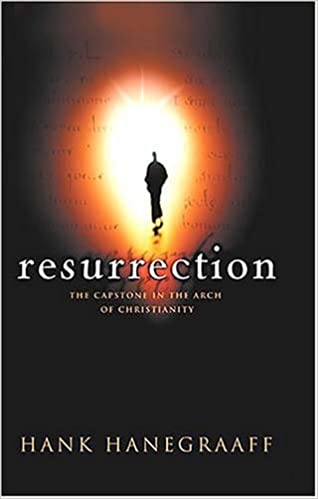Quotes about Eschatology-Glorification
Do you ever sense creation’s restlessness? Do you hear groaning in the cold night wind? Do you feel the forests’ loneliness, the oceans’ agitation? Do you hear longing in the cries of the whales? Do you see blood and pain in the eyes of wild animals, or the mixture of pleasure and pain in the eyes of your pets? Despite vestiges of beauty and joy, something on this earth is terribly wrong… The creation hopes for, even anticipates, resurrection.
We are burdened with this corruptible body; but knowing that the cause of this burdensomeness is not the nature and substance of the body, but its corruption, we do not desire to be deprived of the body, but to be clothed with its immortality… If Adam had not sinned, he would not have been divested of his body, but would have been clothed upon (superinvested) with immortality and incorruption, that his mortal (body) might have been absorbed by life; that is, that he might have passed from his natural body to the spiritual body.
Cited in Philip E. Hughes, The Second Epistle to the Corinthians, Eerdmans, www.eerdmans.com, 1992, p. 171.
If a skillful workman can turn a little earth and ashes into such curious transparent glasses as we daily see, and if a little seed that bears no show of such a thing can produce the more beautiful flowers of the earth; and if a little acorn can bring forth the greatest oak; why should we once doubt whether the seed of everlasting life and glory, which is now in the blessed souls with Christ, can by Him communicate a perfection to the flesh that is dissolved into its elements?
A Puritan Golden Treasury, compiled by I.D.E. Thomas, by permission of Banner of Truth, Carlisle, PA. 2000, p. 247.
Body to the soul: “O my soul, have we got together again after so long a separation? Have you come back to your old habitation, never more to leave? O joyful meeting! How unlike our present state is to what our condition was, when a separation was made between us at death! Now is our mourning turned into joy. The light and gladness sown before are now sprung up. Blessed be the day in which I was united to you, Soul, whose chief care was to get ‘Christ in us the hope of glory,’ and to make me a temple for his Holy Spirit. O blessed Soul, which in the time of our pilgrimage kept your eye to the land then afar off, but now near at hand! You took me into secret places, and there made me to bow these knees before the Lord, that I might bear a part in our humiliation before Him. And now is the time that I am lifted up. You employed this tongue in confessions, petitions and thanksgivings, which now on shall be employed in praising forevermore. You made these sometimes weeping eyes sow that seed of tears, now sprung up in joy that shall never end. I was happily beaten down by you and kept in subjection, while others pampered their flesh and made their bellies their gods, to their own destruction. But now I gloriously arise, to take my place in the mansions of glory, while they are dragged out of their graves to be cast into fiery flames. Now, my Soul, you shall complain no more of a sick and painful body, you shall be no more clogged up with weak and weary flesh. I shall now keep pace with you in the praises of our God forevermore.”
Let us consider this settled, that no one has made progress in the school of Christ who does not joyfully await the day of death and final resurrection.
I still can hardly believe it. I, with shriveled, bent fingers, atrophied muscles, gnarled knees, and no feeling from the shoulders down, will one day have a new body, light, bright, and clothed in righteousness—powerful and dazzling. Can you imagine the hope this gives someone spinal-cord injured like me? Or someone who is cerebral palsied, brain-injured, or who has multiple sclerosis? Imagine the hope this gives someone who is manic-depressive. No other religion, no other philosophy promises new bodies, hearts, and minds. Only in the Gospel of Christ do hurting people find such incredible hope.
All things which the Savior did, He did in the first place in order that what was spoken concerning Him in the prophets might be fulfilled, that the blind should receive sight, and the deaf hear (Isaiah 35:5), and so on; but also to induce the belief that in the resurrection the flesh shall arise entire. For if on earth He healed the sicknesses of the flesh, and made the body whole, much more will He do this in the resurrection, so that the flesh shall rise perfect and entire.
Our Lord has written the promise of the resurrection not in books alone, but in every leaf in springtime.
The seed contains the pattern for the plant that grows. All the genetic code for an entire oak tree is contained inside the kernel of the acorn. Likewise, our resurrection bodies will bear a resemblance to the body that is buried – but with a far greater glory. We will be ourselves, only perfect. And the decomposition of the earthly will only facilitate the remaking of a glorified resurrection body – with none of the flaws of the old, but with all that is necessary for a perfect existence in heaven.
What Will We be Like in Heaven taken from The Glory of Heaven by John MacArthur, copyright 1996, Crossway Books, a division of Good News Publishers, Wheaton Illinois, 60187, www.crosswaybooks.org. page 132.
The ultimate future of the believer is the resurrection of the body at the Second Coming of Jesus Christ (1 Cor. 15). On that glorious Day, the soul and the raised and transformed body of the believer will be one again as God originally created them to be. Not only will our bodies and souls be freed from the remnants of sin, the heavens and earth will be renewed and freed from the curse of sin as well (Rom. 8:18–25). This new earth, in which righteousness dwells, will be our home.
We go into the artist’s studio and find there unfinished pictures covering large canvas, and suggesting great designs, but which have been left, either because the genius was not competent to complete the work, or because paralysis laid the hand low in death; but as we go into God’s great workshop we find nothing that bears the mark of haste or insufficiency of power to finish, and we are sure that the work which His grace has begun, the arm of His strength will complete.
Because we believe in the resurrection of the body, we know our bodies are not expendable vehicles for our souls, and they are certainly not playthings for our amusement.
Since we believe in the resurrection of the body, we do not see a corpse as garbage. From the time of our earliest ancestors in the faith, we have buried our dead, committing them to the earth from which they came with the conviction that they will one day be summoned from it once more. The image of sleep is useful—not because the dead are unconscious but because they will one day be awakened. God deems as faith Joseph committing his bones to his brothers for future transport into the land of promise. In the same way the act of burial is a testimony of the entire community to the resurrection of the body. Cremation is a horrifying testimony of the burning up of the flesh and bones, a testimony that is decidedly pagan in both origin and in practice. Of course, God can resurrect a cremated Christian (or a Christian torn to pieces by lions, etc.), but how we deal with the body of a Christian teaches us – and the watching world – what we really believe about the gospel. Cremation ought then to be shunned by those who hope in Christ.
The glorified body is not a different body, but a different form of the same body.
Do you really believe your faith? Do you believe this that I am telling you? Do you believe a day is coming, when you will stand before the throne of God, and the angels will whisper together and say, “How like Christ he is!” That is not easy to believe. And yet not to believe it is blasphemy. For that, not less than that, is what Christ promises (A.J. Gossip).
When Paul says, “If the dead are not raised, let us eat and drink,” he does not mean, “Let’s all become lechers.” He means, there is a normal, simple, comfortable, ordinary life of human delights that we may enjoy with no troubling thoughts of heaven or hell or sin or holiness or God – if there is no resurrection from the dead. And what stunned me about this train of thought is that many professing Christians seem to aim at just this, and call it Christianity. Paul did not see his relation to Christ as the key to maximizing his physical comforts and pleasures in this life. No, Paul’s relation to Christ was a call to choose suffering – a suffering that was beyond what would make atheism “meaningful” or “beautiful” or “heroic.” It was a suffering that would have been utterly foolish and pitiable to choose if there is no resurrection into the joyful presence of Christ… Judge for yourself. How many Christians do you know who could say, “The lifestyle I have chosen as a Christian would be utterly foolish and pitiable if there is no resurrection?”
John Piper Desiring God, 1996, p. 219, Used by Permission, www.desiringGod.org. Get this book!
Let us not fail to see in the manner of our Lord’s resurrection, a type and pledge of the resurrection of His believing people. The grave could not hold Him beyond the appointed time, and it shall not be able to hold them. A glorious angel was a witness of His rising, and glorious angels shall be the messengers who shall gather believers when they rise again. He rose with a renewed body, and yet a body, real, true, and material, and so also shall His people have a glorious body, and be like their Head. “When we see Him we shall be like Him” (1 Jn. 3:2.).
This is noble encouragement to all the saints; die they must, but rise they shall, and though in their case they shall see corruption, yet they shall rise to everlasting life. Christ’s resurrection is the cause, the earnest, the guarantee, and the emblem of the rising of all His people. Let them, therefore, go to their graves as to their beds, resting their flesh among the clods as they now do upon their couches.
[The resurrection of the body] is the Christian’s brightest hope. Many believers make a mistake when they long to die and long for Heaven. Those things may be desirable, but they are not the ultimate for the saints. The saints in Heaven are perfectly free from sin and, so far as they are capable of it, are perfectly happy. But a disembodied spirit never can be perfect until it is reunited to its body. God made man not pure spirit but body and spirit, and the spirit alone will never be content until it sees its physical frame raised to its own condition of holiness and glory. Think not that our longings here below are not shared in by the saints in Heaven. They do not groan so far as any pain can be, but they long with greater intensity than you and I for the “adoption…the redemption of our bodies.” People have said there is no faith in Heaven, and no hope. They know not what they say – in Heaven faith and hope have their fullest swing and their brightest sphere, for glorified saints believe in God’s promise and hope for the resurrection of the body.
I said of this poor body, “You have not yet been newly created. The venom of the old serpent still taints you. But you shall yet be delivered. You shall rise again if you die and are buried, or you shall be changed if the Lord should suddenly come today. You, poor body, which drags me down to the dust in pain and sorrow, even you shall rise and be remade in the redemption of the body. For the new creation has begun in me, with God’s down payment of his Spirit.” Oh beloved, can’t you rejoice in this? I encourage you to do so. Rejoice in what God is doing in this new creation! Let your whole spirit be glad! Leap down, you waterfalls of joy! Overflow with gladness! Let loose the torrents of praise!
The resurrection body…is more than simply the putting on of a garment: it is the putting on of a garment over another. The picture is that of the heavenly body being put on like an outer vesture or topcoat, over the earthly body, with which the Apostle is, as it were, clad, so as not only to cover it but absorb and transfigure it. The assumption of the resurrection body, therefore, is not a creation ex nihilo, as if it were totally unrelated to the past, but is simply the fulfillment of a spiritual process which began with regeneration. We do not receive so much a new and different body as do we get the present one changed. Thus there is an element of both continuity and discontinuity (cf. Phil. 3:20-21; 1 Cor. 15:53: “This corruptible must put on incorruption and this mortal must put on immortality;” see also 2 Pet. 3).
Individual Eschatology, November 8, 2006, www.enjoyinggodministries.com. Used by Permission.
Thou wilt come to raise my body from the dust, and re-unite it to my soul, by a wonderful work of infinite power and love, greater than that which bounds the ocean’s waters, ebbs and flows the tides, keeps the stars in their courses, and gives life to all creatures.
We are more sure to arise out of our graves than out of our beds.






